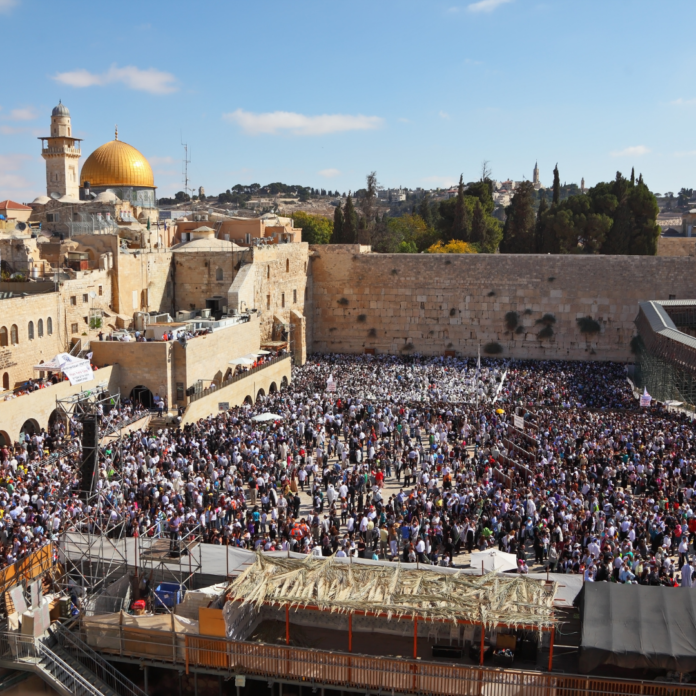
What does the term kedusha mean? What is holiness? In what way is God holy, and how are we meant to copy it? Many of the concepts and mitzvot of Sefer Vayikra seem obscure, their meaning beyond our grasp.
Let’s delve into the opening commandment of our sedra, that we should “be holy because God is holy.” Perhaps we can gain some clarity.
Reb Shimon Shkop, a famed Lithuanian Talmud scholar, discusses this commandment in the preface to his book. He proposes that holiness means to give of oneself to others, exactly like God does. What we know of God is that He created and sustains the world, His actions are entirely focused on an entity outside of Himself. So holiness (literally, being separated or elevated beyond one’s own’s self), means to dedicate oneself to others. Like God’s act of sustaining the Universe, we too are instructed to be holy, projecting ourselves outwardly and giving to others.
Reb Shimon goes on to explain that we can only do this by feeling a sense of unity with the world. “A person should expand the natural love they have for themselves and feel that all of creation is included within his sense of self; one should see himself as a small limb in this great body of the Universe” and so naturally give to the wider world to which he is part of – being holy through uniting with others.
Indeed, in commanding the Jewish People to be holy, Moshe gathered “the entire congregation of Israel” and addressed them as a collective, united as one. “Only in unity,” seeing oneself as part of a wider whole, can one truly love and give to those around oneself, thereby achieving holiness (Sefat Emet).
This idea of holiness, of giving to others, being achieved only through uniting with creation, perhaps is the foundation of our entire sedra, and sheds light on the long litany of mitzvot that it contains.
There are a strange links between all the mitzvot of our parsha. Unlike the sharp distinction made within the Ten Commandments, here all the dozens of mitzvot, those between man and God and those between man and man, are interwoven and almost blur together. In these passages, it is almost as if the natural world and human society become blended together, ourselves, society, and relationship towards the natural world fuses into a unity:
“When you reap the harvest of your land, you shall not fully reap the corner of your field, nor shall you gather the gleanings of your harvest… You shall not round off the corner of your head, and you shall not destroy the edge of your beard… You shall not steal, you shall not deny falsely or lie to one’s his friend; you shall not swear falsely by My Name, profaning the Name of your God… You shall not stand by your fellow’s blood… You shall not eat before a sacrifice’s blood has been sprinkled…”
These Chukkim and Mishpatim, laws geared towards enabling us to respect both nature and human society (the Ramban; R’ Hirsch), all mixed into one. In this list, the corners of our human faces mirror the ends of the earthy fields of the land (pe’ah) and our bodies the fruits of the trees (brit milah and orlah). We are commanded to watch our speech both regarding God and regarding our fellow man, and to treat the blood of sacrifices and animals with care, as well as the lives of people. Perhaps these laws enable us to unite us to Creation, to become close to others and to nature. That sense of unity, of being “a part of a wider whole,” can then help us give to those around us, being holy just like God.









